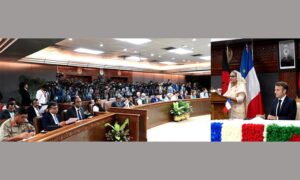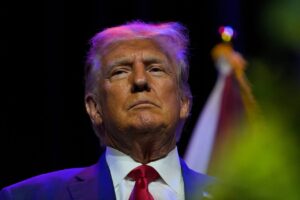
The United Kingdom has marked Bangladesh as a “real” spot for intensified trade relations alongside security engagements in prevailing scenario as it reviews 50 years of bilateral ties, British High Commissioner Robert Chatterton Dickson said.
“Investors are always looking for new opportunities . . . the story (of Bangladesh) is a very attractive one,” the envoy told BSS diplomatic correspondent coinciding with the golden jubilee of its recognition of Bangladesh soon after its 1971 independence.
He said the British entrepreneurs saw “real opportunity” in Bangladesh for doing business while London was simultaneously keen to build “more” defense cooperation with Dhaka.
Dickson said the UK companies were showing their interest in Bangladesh seeing an expanding market here with 30 million better off consumers in an economy with rapid growth.
“That is a market that they (UK companies) would like to serve, particularly the sort of high value goods and services that British companies are very good at producing,” he said.
Dickson added that the British government was keen about UK businesses enhanced engagement in Bangladesh particularly pointing out that his country’s standard financial, education, and health services would be highly competitive in Bangladesh.
Dickson simultaneously added: “We’re (UK) doing more in the sort of defence and security areas as well.”
Despite a “very difficult start” in 1971, the envoy said, Bangladesh’s remarkably resilient, adaptable, creative and intelligent nature drove it on the verge of LDC graduation in 2026 for which it now needed increased foreign direct investment (FDI) and diversified export basket for that graduation.
“We’re working with a variety of parts of the government to try to make more attractive the inward investment offer that Bangladesh represents,” he said but expected Dhaka’s initiative to better the “doing business” index, removing some barriers and obstacles.
Dickson said his country already extended support to Bangladesh government to address the areas like legal framework and intellectual property protection.
He said under a continued trade dialogue in line with Britain’s post Brexit trade policy the UK by now decided to continue to provide duty free and quota free access of Bangladesh products for at least three successive years after 2026, the expected LDC graduation deadline.
“So, we’re already active and I’m sure we’ll be doing more over the next sort of three to five years,” he added.
Security Cooperation
The High Commissioner said London was currently engaged in a process with Bangladesh to source more military equipment both directly and “through some of the partnerships that we’re involved in”.
Dickson, however, preferred not to elaborate further on the issue but said “we are looking forward to talks during this year between our defence ministries in some form so we’re working on that in a more sort of structured way”.
“We are very happy to work with the (Bangladesh) government on how to make sure that theirs armed forces are fit for the purpose in the 21st century,” he said.
Dickson added that the UK planned to put lots of focus on the pacific over the next decade and Bangladesh already appeared as its “very strong partner” in this region.
Bangladesh’s foreign minister Dr AK Abdul Momen recently said Dhaka and London in principle agreed that Bangladesh would procure five naval ships from Britain as Prime Minister Sheikh Hasina was in the UK in last November.
Momen at that time said out of the five ships, three were to be imported from the UK and the rests to be built in Chattogram dockyard.
Asked for comments on latest development on the issue, the envoy said “there’s some purchase (of navy ships) that could go through quite quickly” but said details on the matter were expected to be announced by Dhaka “in due course”.
Dickson recalled that many of the early Bangladesh Navy vessels were built in the UK, which now was keen to enable Bangladesh to buy top quality British defence equipment.
Bangladesh launched the “Forces Goal 2030” to improve the capabilities of the Bangladesh armed forces while for the Navy, the aim of the program is to transform the service into a modern, well-equipped force that can conduct multi-domain operations.








